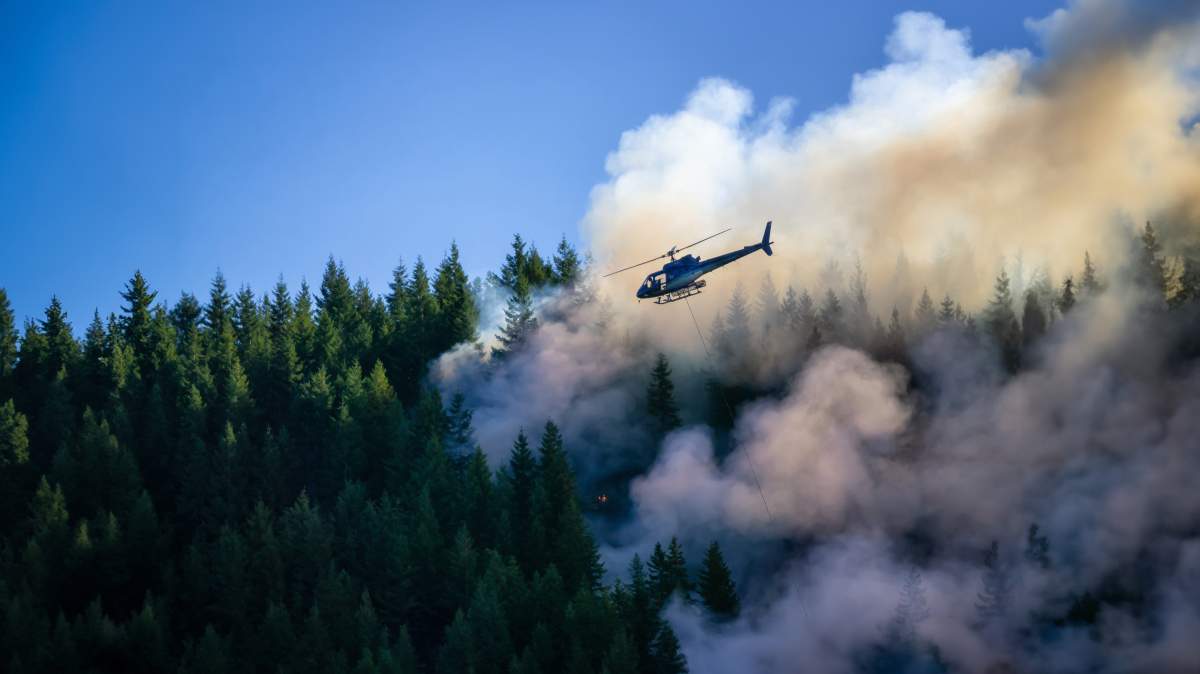The wildfire season started early this year in British Columbia, with the first evacuation alerts announced in April, 2024. There are currently more than 100 active fires burning in the province, including 62 holdover fires or “zombie” fires from 2023 that have an approximately 7,300 kilometers combined total in perimeter size – comparatively, about the distance between Vancouver, BC to St. John’s, Newfoundland. The economic and emotional toll has been immense to individuals and communities. As local authorities continue to battle the flames, United Way British Columbia is leading the efforts to provide critical support to those affected by wildfires.

The 2023 wildfire season was the most destructive in British Columbia’s recorded history. In the Bush Creek East wildfire, more than 270 buildings were destroyed in North Shuswap and 8,000 people were evacuated in June before the fire was brought under control in late September. In West Kelowna, over 10,000 residents were evacuated in phases over three days when the McDougall Creek Wildfire started in August.
“There’s a whole multitude of ways in which we support during a wildfire event, and we’re connected into those communities for three to five years after a wildfire hits as well,” said Tobias Jones, Emergency Response Manager, Community Impact & Investment, United Way BC.
United Way BC focuses on both emergency relief at the grassroots level and long-term recovery efforts in partnership with local organizations.
Thanks to United Way BC’s Wildfire Recovery, the Eagle Valley Community Support Society (EVCSS) launched an emergency food access program, providing Emergency Food Hampers to help support residents of North Shuswap impacted by the Bush Creek wildfire.

Get breaking National news
“On the first Hamper Day, we handed out eight hampers,” explained Debbie Thompson, project leader of EVCSS. “We are now averaging upwards of 25 hampers. This project will now be a permanent fixture in our community,” she said proudly.
The EVCSS emergency food bank proves how vital it can be for a community to have resources like the Wildfire Recovery Fund.
During the 2023 wildfires, donations from the Wildfire Recovery Fund provided essential supplies such as fuel for generators, water, blankets and gas vouchers to help evacuees travel to safety. The funds also supported local and provincial organizations in assisting those impacted in various ways, such as helping seniors affected by wildfire smoke who could not leave their homes, providing mental health and counseling support, and hiring caseworkers to offer continued assistance to affected individuals and families.
Every community and its members are susceptible to being in a situation that can change someone’s life completely, and people need to heal not only materially and financially, but also emotionally.
Some areas where residents were evacuated included both their place of employment and their home, so they had very few resources with them – the caseworkers helped to find housing, get furnishings, provide vouchers to thrift stores, grocery gift cards, and helped to advocate when insurance claims were involved. For people who didn’t have insurance, they supported individuals and families to apply for grants.
It can take years to recover from the impacts of wildfire, which is why United Way BC works with agencies, community members, and individuals to help strengthen their communities long-term. For example, United Way BC offers the Local Love microgrant, a low-barrier community access fund of up to $1,000. Through this grant, “we see things like community barbecues as a way of bringing people together to help connect post-crisis,” said Jones. Animal-focused therapy and art classes are among other offerings,
Authorities are expecting 2024 to be a challenging wildfire season, and United Way BC is ready and committed to supporting community preparedness and resilience.
“Currently we have an Emergency Response Specialist who is working in Kelowna and helping to build up resiliency and preparation for this year’s wildfire,” said Jones. “One of the things that she’s involved in is helping to build homemade air filtration kits,” he continued.
Jones recommends having conversations with your family, neighbours, and friends about wildfire preparedness. “We’ve created Emergency Preparedness Guides that’s both for families and for seniors, as well as people with increased vulnerabilities – and I think just having those conversations around what preparedness looks like for you and your family is really important,” he said.
United Way BC’s Wildfire Recovery Fund has been a key component in supporting ongoing relief efforts and long-term recovery. As British Columbia faces increasingly severe wildfire seasons, these efforts become ever more critical.
To learn more about how you can support United Way BC’s wildfire efforts, visit uwbc.ca/wildfires.

